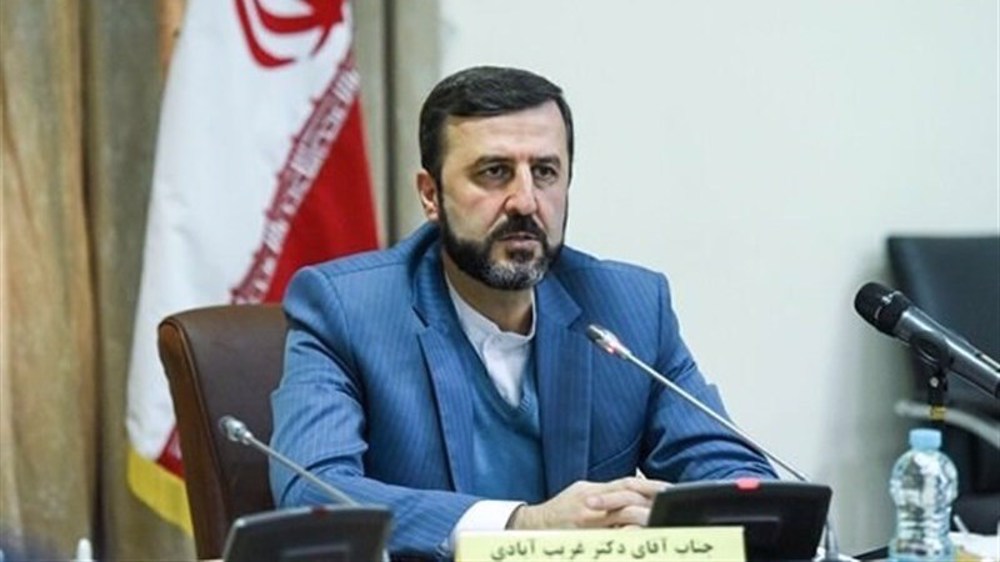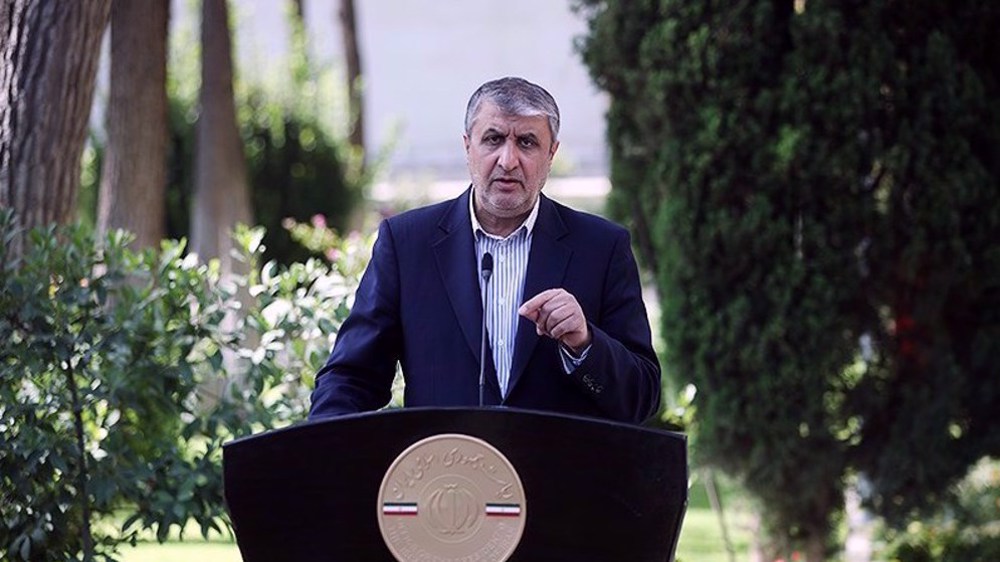Case of inspection of Iran’s military sites closed forever: AEOI
The case of the inspection Iran’s military sites has been closed forever, says the spokesman for the Atomic Energy Organization of Iran (AEOI) as the head of the International Atomic Energy Agency (IAEA) arrives in the country.
Behrouz Kamalvandi said on Saturday that the issue of inspecting Iran’s military sites has been included neither in the multilateral 2015 nuclear agreement, known as the Joint Comprehensive Plan of Action (JCPOA), nor in the Additional Protocol and the Safeguards Agreement.
“What is important is that the Agency (IAEA) can request [the inspection of] and have access to nuclear facilities,” added the AEOI deputy head.
Kamalvandi emphasized that Iran was carrying out its nuclear activities in sites declared to the UN nuclear agency, saying, “There is no reason for them to have access to other places, whether military or non-military sites.”
The senior AEOI official urged the IAEA to fulfill its duties in a “professional and independent” way without bowing to any “political pressure.”
The JCPOA was signed between Iran and the five permanent members of the UN Security Council – the United States, France, Britain, Russia and China – plus Germany in July 2015 and took effect in January 2016. Under the deal, Iran undertook to apply certain limits to its nuclear program in exchange for the termination of all nuclear-related sanctions against Tehran.
Speaking at a news conference in New York on August 25, US Ambassador to the United Nations Nikki Haley called on the IAEA to request access to Iranian military sites, in what is regarded as an attempt by Washington to undermine the JCPOA, which is a multilateral nuclear deal.
The IAEA’s Board of Governors voted overwhelmingly in December 2015, months after the nuclear deal was signed, in favor of a resolution that closed the so-called possible military dimensions (PMD) case in Iran’s nuclear program.
“We are encouraging the IAEA to use all the authorities they have and to pursue every angle possible with the JCPOA, and we will continue to support the IAEA in that process,” she said.
Kamalvandi also pointed to the visit by Yukiya Amano, the director general of the IAEA, to Tehran and said, “We expect the agency to carry out its professional duties as it has done so far and announced our country’s compliance with the JCPOA in eight reports.” Amano arrived in Tehran at the head of the delegation on Saturday evening for talks with Iranian officials.
Kamalvandi added that Iran would continue to deliver on its commitments under the nuclear accord as long as other sides fully implemented their undertakings.
“We expect the opposite sides, the IAEA, the European Union and different countries to live up to their commitments as well,” the Iranian nuclear official said.
Read more:
- IAEA not authorized to inspect Iran’s military sites: Russia
- Europe's stance on JCPOA different from that of US: Iran official
- EU supports Iran nuclear deal, vows full commitment
Amano's visit to Iran comes amid a dispute between Tehran and Washington after US President Donald Trump decided on October 13 not to certify Iran’s compliance with the JCPOA.
The US Congress now has less than 60 days to decide whether to reimpose economic sanctions on Tehran that were lifted under the nuclear accord.
The IAEA is the only official institution in charge of verifying Iranian compliance, and it has repeatedly verified Iran’s adherence to its contractual obligations.
VIDEO | Press TV's news headlines
VIDEO | Israeli forces launch wide-scale military operation in Qabatiya, south of Jenin
Trump-backed push brings Jolani regime, Israel closer to deal: Israeli media
VIDEO | Iraqi govt. rejects any kind of normalization with Israeli regime
VIDEO | Venezuela's medicine prices soar to unaffordable level amid US blockades
Somalia officially demands Israel reverse recognition of Somaliland
Hezbollah condemns deadly terror attack on worshippers in Syria’s Homs
VIDEO | US military build-up in Caribbean










 This makes it easy to access the Press TV website
This makes it easy to access the Press TV website